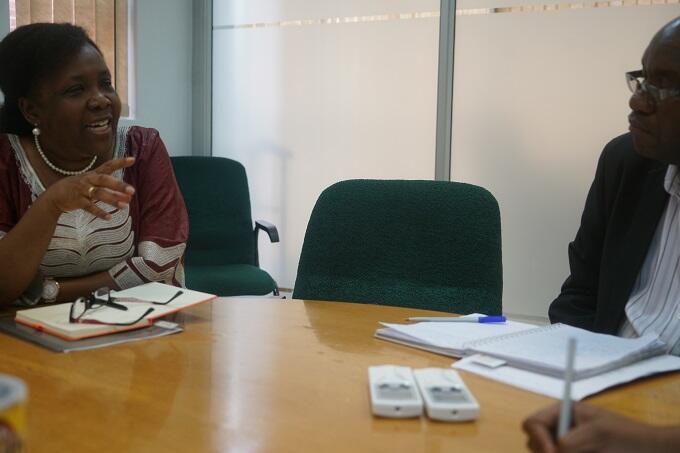Harare, Zimbabwe, 6 March – The United Nations Population Fund has called for greater focus on prevention with particular focus on young people to help reduce the country’s HIV prevalence rate of 14,6%.
Speaking during a courtesy call on the National Aids Council Executive Director Dr. Tapuwa Magure UNFPA Country Representative Dr. Esther Muia said HIV prevention should be key to addressing the problem of HIV/AIDS in Zimbabwe by focusing on key populations and young people.
“As UNFPA we are looking at greater cooperation with partners especially National Aids Council on prevention interventions to reduce Zimbabwe’s HIV prevalence rate of 14.6% to below 10%,” said Dr. Muia. “Our focus should be on key populations and young people.”
She said reaching young people with information on Sexual Reproductive Health is key to reducing HIV prevalence among adolescents together with ensuring availability of condoms.
National Aids Council executive director Dr. Tapuwa Magure said Government is committed to addressing the problem of HIV in the country and will continue to coordinate interventions in the country to ensure optimisation of resources. UNFPA works to intensify and scale up HIV prevention efforts in Zimbabwe. Although HIV prevalence has declined from 26.5 per cent in 1997 to 14.6% to date, it remains high. HIV related illness remains the largest cause of death of among adults of reproductive age and children.
UNFPA’s efforts are focused on promoting access and utilisation of integrated sexual and reproductive health and HIV services through support from the Governments of Ireland, Sweden and United Kingdom. Key programmes include the integrated community based demand generation programme through the Behaviour Change Facilitators which uses the home visit approach aimed at reaching families, couples and individuals with information on HIV, GBV and SRH services available to them.
The National Sex Work Programme in Zimbabwe provides reproductive health services, HIV testing and referral, health education through static and outreach clinics sites established along major highways and hotspots. Other interventions include condom programming; support to SRH/HIV linkages aimed at service integration; and STI prevention and control.


